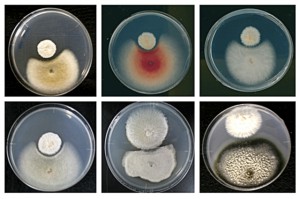The research paper titled Plant disease suppression by a plant-symbiotic endophytic fungus (Epichloë festucae) depends on its ability to produce an antifungal compound has identified a gene responsible for an endophyte’s plant host disease resistance-enhancing ability. 
“Endophytes are either bacteria or fungi, which spend the whole or part of their life cycle inside a healthy host plant. Unlike pathogens, they don’t cause apparent symptoms of disease; some of them can even protect its host from diseases,” explained Dr. Jennifer T. Niones, lead researcher.
The paper described an endophytic fungal isolate, which protects its host (grass) from disease infection through the production of an anti-fungal compound.
Niones identified vibA gene responsible for the host protective ability of the fungal endophyte.
“Without the vibA gene, we observed that the organism (endophyte) was unable to produce an anti-fungal compound, and, hence could not protect the plant (grass) from infecting pathogens,” explained Niones.
She also observed that the overexpression of the vibA gene enhanced the effectiveness of the inhibitory compound produced by the endophyte.
Niones said the study opens doors for various biocontrol approaches. As it stands, it is no longer limited to the direct application or use of the organism in crop production to manage pests. Through biotechnology, one can directly work on the gene responsible for the biocontrol agent’s bioprotective activity.
“The inhibitory compound regulated by vibA gene is also effective in inhibiting the growth of some rice pathogens such as Rhizoctonia solani from sheath blight and Magnaporthe grisea from blast disease,” Niones said.
With these, Niones plans to study fungal endophytes from rice in 2016.
“The plan is to find endophytes that can induce disease resistance in rice,” Niones said.
Studies by the International Rice Research Institute (IRRI) noted that on average farmers lose 37% of their rice yield to pests and diseases.
This research forms part of Niones’ dissertation at the Nagoya University in Japan where she finished her PhD in Bioagriculture Science in 2014.




